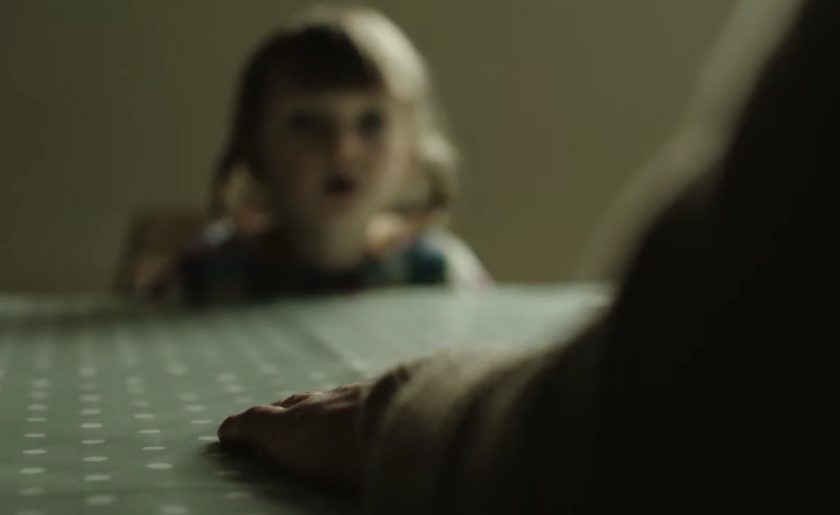Wales introduces ban on smacking children but critics say new law could ‘criminalise’ parents

Landmark legislation came into force today in Wales that removes the archaic 160-year-old legal defence of “reasonable punishment.”
Under the Children (Abolition of Defence of Reasonable Punishment) (Wales) Act 2020 all types of physical punishment, such as smacking, hitting, slapping and shaking, are now illegal.
The new law essentially provides children with the same protection from assault as adults.
Critics have expressed concerns that the ban would criminalise parents.
The warn police and social workers will be overwhelmed with “trivial cases” leaving them more stretched and with fewer resources to deal with genuine cases of child abuse.
Article 19 of the United Nations Convention on the Rights of the Child (UNCRC) gives children the right to be protected from harm and being hurt. This includes physical punishment.
In 1979, Sweden became the first country in the world to end the physical punishment of children.
Wales will become the third part of the British Isles, after Jersey and Scotland in 2020, to make physical punishment illegal.
First minister Mark Drakeford said he was “really proud that today we have finally made the physical punishment of children illegal here in Wales.”
“We must do all that we can to protect our children from harm and this includes physical punishment.”
The Welsh Government says “There is a big difference between discipline and physical punishment.”
“Every child needs discipline – it’s about providing boundaries, guidance and support as they grow up and learn appropriate behaviour. But physical punishment should not be a feature of discipline.”
“Physical punishment can have a lasting negative impact on a child, leading to fear, anger, sadness and confusion.”
“The use of physical punishment also teaches children that violence is acceptable and is an appropriate response to strong feelings.”
Be Reasonable
The Be Reasonable campaign – a grassroots coalition of parents, academics and politicians that has campaigned against making reasonable chastisement a criminal offence – it said that there was no solid research basis for banning smacking.
They previously highlighted the costs of the ban, predicted to top £3.7m, including nearly £1m for extra policing, Court and Crown Prosecution Service costs.
Simon Calvert from the campaign group told BBC Radio Wales this morning: “This is not about protecting children from abuse because of course that’s already illegal.”
“What the (Welsh) Government has done is repeal the ‘reasonable chastisement’ defence, which only protected reasonable parental interactions.”
“If you did anything which left anything more than a transient reddening of the skin, that was already illegal.”
He said: “What is being outlawed here is only by definition, reasonable actions, things like tapping a tot on the back of the hand.”
“That’s the change being made and the Welsh Government has been very sensitive to the criticism that they are criminalising parents.”
“In fact they denied it up and down, throughout the passage of this legislation.”
Mr Calvert said: “The first minister at the time, Carwyn Jones said “this is not about criminalising parents” the previous children’s minister said, “this is not about criminalising parents.”
“And here we are, the law is now in force and the official guidance from the government says that if you see someone spanking a challenge to call the police, and that the parent could get a criminal record.”
A recently published factsheet, Ending Physical Punishment in Wales, confirms that parents found to have physically punished their child ‘could be charged with common assault’ and receive a criminal record.
Mr Calvert said: “There are lots of people that don’t like smacking who will be very concerned to hear that parents are going to be criminalised for it.”
“I think that a lot of people who perhaps supported just changing law on the basis that it wasn’t criminalising parents now find out that they’ve been misled.”
The Welsh Government says “It isn’t possible to give a set list of what makes up physical punishment because it can be anything where a child is punished using physical force.”
“Research suggests that any type of physical punishment could be harmful to children.”
Mr Calvert said: “What you have got now is the prospect, potentially, of police involvement where there’s no sign of a smack or a tap, it’s just a parent having to do something to with an uncooperative child, and that gets reported to the police.”
And this is the problem, It’s these kinds of ordinary everyday judgments that good parents make that get dragged into the ambit of the criminal law. They shouldn’t we.”
Children’s Commissioner for Wales.
Professor Sally Holland, the Children’s Commissioner for Wales said she was “delighted today to wake up in a nation that formally rejects the physical punishment of a child. ”
“Children’s rights, to safety, health, and to reach their full potential, have clear and unambiguous precedence and protection today.”
“The change brings Wales in line with over 60 countries worldwide who have already strengthened the law for children, and reflects a cultural change that has accelerated in recent years.”
Prof Holland said: “As adults, we do not accept physical violence in any part of our lives, and as a nation we are clear today that we do not accept it in our children’s lives either.”
“I take tremendous pride that this landmark piece of legislation was achieved by working in partnership.”
“It’s been such a delight to see public services in Wales, from health to police, from senior religious leaders to the voluntary sector working as one on this.”
“For me personally, I’ve campaigned for this for years and committed to achieving this change during my time as Children’s Commissioner for Wales.” She said.
Clwyd West MS
Member of the Senedd for Clwyd West Darren Millar, a vocal opponent of the ban when it was passed before the last election, said:
“The Welsh Government’s guidance flies in the face of the assurances that Ministers gave to people across Wales when they introduced their unnecessary ban on physical chastisement.
“Demonising mums and dads who use the occasional smack to discipline their children is plain wrong and encouraging people to shop them to their local social services or the police could have dire consequences for families.”
“Parenting is hard enough as it is, we should be encouraging and supporting parents, not criminalising them.”
“Police officers and social workers are busy enough as it is, they should be able to focus their energy on getting to grips with real cases of child abuse rather than being distracted by what is likely to become thousands of unnecessary reports.”
Q&A:
What is physical punishment?
There are lots of types of physical punishment.
It can mean smacking, hitting, slapping and shaking. But there are other types too.
It isn’t possible to give a set list of what makes up physical punishment because it can be anything where a child is punished using physical force.
Research suggests that any type of physical punishment could be harmful to children.
What does the change in law mean?
- All physical punishment will be illegal in Wales.
- It will give children the same protection from assault as adults.
- It will make the law clearer – easier for children, parents, professionals and the public to understand.
Will the change in law apply to everybody in Wales?
Yes, it will apply to everyone – parents or anyone who is responsible for a child while the parents are absent.
And as with other laws, it will apply to visitors to Wales too.
Physical punishment is already illegal in schools, children’s homes, local authority foster care homes and childcare settings.
What happens if people physically punish a child from 21 March 2022?
Anyone who physically punishes a child:
- will be breaking the law
- risks being arrested or charged with assault
- may get a criminal record which is the same for any criminal offence.
Information, advice and support is available for anyone who needs it, to help them find positive ways to manage children’s behaviour and to help avoid such a situation ever happening.
What should I do if I see a child being physically punished or if I am concerned about a child?
- Contact your local social services department.
- You can also call the police in an emergency or if a child is in immediate danger.
Is it legal to use physical punishment against a child now?
It’s a bit of a grey area. Hitting a child is common assault. If a parent or someone with parental responsibility for a child is charged with common assault against the child, they could try to use the defence of reasonable punishment. From 21 March 2022, this defence will no longer be available in Wales; all types of physical punishment will be illegal.
Where can I get advice and support?
- Parenting. Give it time offers positive parenting practical hints, tips and expert advice to encourage good behaviour from children and alternatives to physical punishment. Their parenting support page offers links to further support and helplines.
- Universal parenting support and advice is provided by midwives, health visitors, GPs and Family Information Services.
- Early help programmes such as Flying Start (if you live in a Flying Start area) and Families First.
Spotted something? Got a story? Send a Facebook Message | A direct message on Twitter | Email: [email protected]
Latest News









